Category Archives: Data lake
Data Lakehouses Fundamentals & Examples
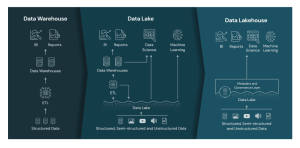
Last updated: 12th May, 2024 Data lakehouses are a relatively new concept in the data warehousing space. They combine the scalability and cost-effectiveness of cloud storage-based data lakes with the flexibility, security, and performance of traditional data warehouses to create a powerful data management solution. But what exactly is a data lakehouse, how does it work, and how might it be used in your organization? In this blog post, we’ll explore the basics of data lakehouses and provide real-world examples to illustrate their value. What is a Data Lakehouse? Simply speaking, data lakehouses combine elements from both data warehouses and data lakes — hence the name “data lakehouse” — to …
Data value chain: Framework, Concepts
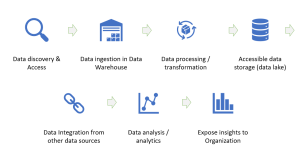
As organizations become increasingly data-driven, understanding the value of data is critical for success. The data value chain framework helps to identify and maximize the value of data by breaking it down into its components. In this post, we will explain what a data value chain is, why it’s important, and how to implement it. Data Value Chain Framework: Key Stages The data value chain (DVC) is a business model that helps organizations understand how to create, manage and utilize their data assets in order to realize maximum business value based on using them. It breaks down the various stages of an organization’s entire journey with its data into distinct …
Data Warehouse vs. Data Lake – Differences, Examples
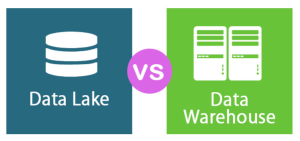
When it comes to data storage, there are two distinct types of solutions that you can use—a data warehouse and a data lake. Both of these solutions have their own benefits, but it’s important to understand the key differences between them so that you can choose the best option for your needs. Let’s take a closer look at what makes each solution unique. What is a Data Warehouse? A data warehouse is defined as an electronic storage system used for reporting and analysis. Data warehouses store data in a structured (row-column) format. It typically contains aggregated collections of data from multiple sources, which come together in one database. A data warehouse …
Data Lake: Design principles & Best practices
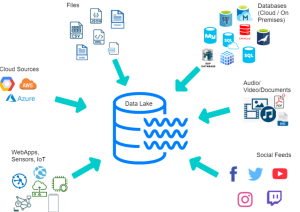
In today’s business world, data is king. The more data you have, the more insights you can glean about your customers, your products, and your operations. And the best way to collect and store all that data is in a data lake. A data lake is a data management and analytics platform that offers several benefits over traditional data warehouses. Data lakes have gained in popularity in recent years due to the growing volume of data being generated by businesses and organizations of all sizes. But before you can reap the benefits of a data lake, you need to design it correctly. The people who should be involved in designing …
Building Data Analytics Organization: Operating Models
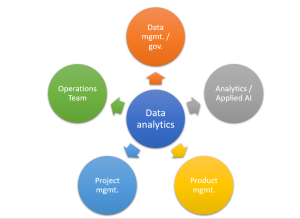
Most businesses these days are collecting and analyzing data to help them make better decisions. However, in order to do this effectively, they need to build a data analytics organization. This involves hiring the right people with the right skills, setting up the right infrastructure and creating the right processes. In this article, we’ll take a closer look at what it takes to set up a successful data analytics organization. We’ll start by discussing the importance of having the right team in place. Then we’ll look at some of the key infrastructure components that need to be put in place. Finally, we’ll discuss some of the key process considerations that …
Gartner Data Analytics Trends for 2022
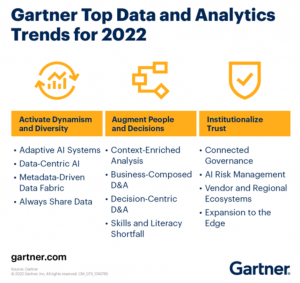
Every year, Gartner releases a report on the latest data analytics trends that will be influential for businesses in the coming year. These reports are always insightful, and provide valuable information for companies who want to stay ahead of the curve. This year is no exception, and Gartner released their predictions for data analytics trends in earlier in 2022. In this blog post, we will take a look at some of the most important trends that Gartner has identified. Although it is a bit late to publish this post. However, this post discusses the concepts in detail and will be updated from time-to-time. Stay tuned for more insights into the …
Key Architectural Components of a Data Lake
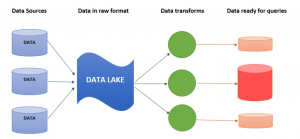
Data lakes are data storage systems that allow data to be stored, managed and accessed in a way that is cost-effective and scalable. They can provide a significant competitive advantage for any organization by enabling data-driven decision-making, but they also come with challenges in architecture design. In this blog post, we will explore the different components of data lakes, including the data lake architecture. Before getting to learn about data lake architectural component, lets quickly recall what is a data lake. What is a data lake? A data lake is a data storage system that allows data to be stored, managed, and accessed in a way that is cost-effective and …
I found it very helpful. However the differences are not too understandable for me